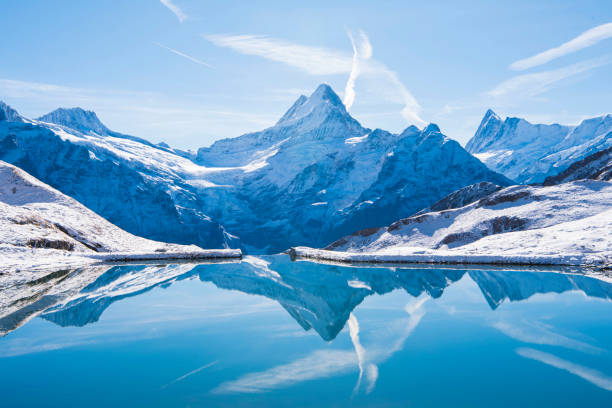Switzerland on Friday announced adjusted proposals to meet the country’s target to halve greenhouse gas emissions by reducing CO2 emissions by 2030.
This comes after voters rejected the government’s first attempt to do so in the narrow result of the referendum last year. Swiss citizens thought the realization of the plan of cutting CO2 emissions proceeds too fast and is heavy to implement.
The new draft legislation approved by the federal government excludes planned additional charges on airplane tickets and car fuel. These surcharges directly hit the citizens, so the first try to pass was doomed. Now the government is focused on around $4.3 billion in state investments to protect the climate.
According to a new strategy, this amount aims to make buildings greener and to improve transport. Investments in transport include electric vehicle charging stations and buying electric vehicles for public transportation.
In the meantime, the tax on fossil fuels such as oil and gas will remain at $125 per ton. Importers will be required to offset some CO2 emissions. Expectations are to transfer part of the tax to customers at the fuel stations. The citizens will have to pay their part of the tax for 5 cents per liter of fuel – diesel or petrol.
Car importers would be obliged to improve the fuel efficiency of the vehicles they offer. Also, the airlines would have to mix their kerosene with fuels from renewable sources.
The government aims for 75 percent of the targeted emissions reduction to be achieved domestically, and the rest will be achieved through climate protection efforts abroad.
It’s not just climate activism, it is about money too
Switzerland has widely developed mountain tourism. So, the country has a special interest to do more to improve the situation with climate change. Given the fact temperatures rise nearly twice, the famous Swiss glaciers are melting.
So, the reduction of CO2 emissions is of higher importance for the Swiss economy in the future.

Of the Swiss Gross Domestic Product (GDP) tourism accounted for 2.8-2.9%. Foreign tourists provide approximately 5.3% of the Swiss income making tourism the third economic sector in the country.
Tourism in Switzerland is one of the major employers – making 4.1% of jobs directly involved in this industry. Some tourist destinations in the Alps, for instance, gain more than 80% of the regional GDP from tourism. The Alps are visited on average by 60-80 million tourists yearly, mainly as guests in some of the 600 ski resorts. The Alps provide more than 85% of Europe’s skiing installations.
A recent Europe-wide examination showed increasing losses in winter tourism due to reduced snow cover. The other main reason is climate changes in the Alps increased exposure of settlements and infrastructure to natural hazards.

